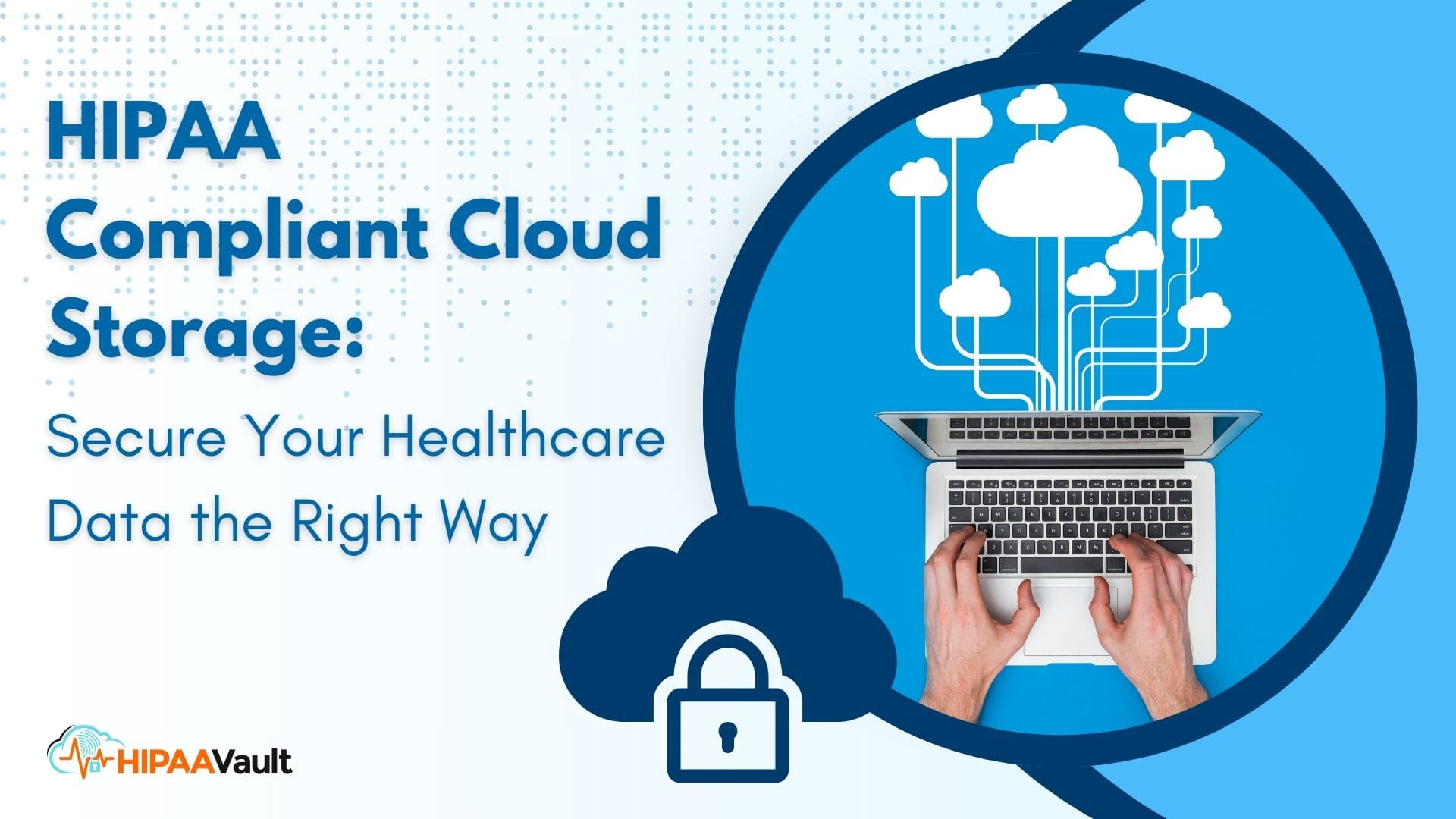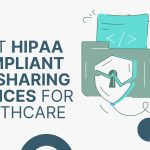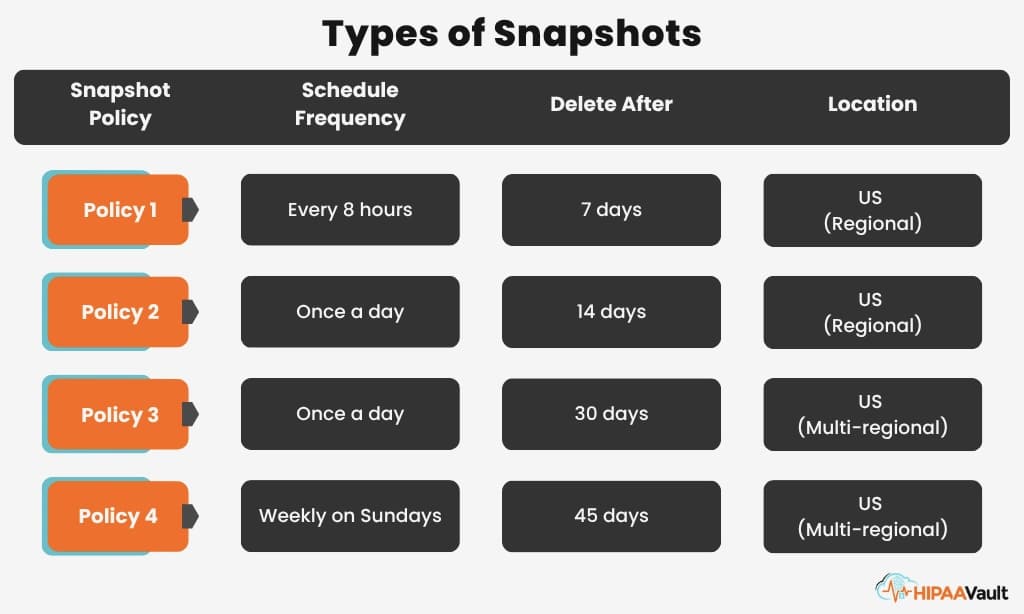In today’s increasingly digital healthcare ecosystem, HIPAA compliant cloud storage is not just a smart investment — it’s a regulatory requirement.
With protected health information (PHI) constantly being transmitted, stored, and shared, any organization handling patient data must ensure that their cloud storage meets HIPAA standards.
But what makes cloud storage truly HIPAA compliant?
And which providers offer real security — not just promises?
⚠️ Need expert guidance on HIPAA-compliant cloud storage, file sharing, or backups?
👉 Talk to our HIPAA-trained specialists today for 24/7 support and secure, compliant cloud solutions.
Let’s break down the essentials and explore the best cloud storage options for healthcare in 2025.
What Is HIPAA Compliant Cloud Storage?
HIPAA compliant cloud storage refers to any cloud-based system that securely stores electronic protected health information (ePHI) in compliance with the Health Insurance Portability and Accountability Act (HIPAA).
Unlike standard cloud storage, compliant solutions must implement:
- Technical safeguards like encryption and access control
- Administrative safeguards such as staff training and policies
- Physical safeguards like secure data centers
- A signed Business Associate Agreement (BAA) between the provider and the covered entity
This ensures healthcare data is encrypted, auditable, and protected against breaches.
👉 Ready to secure your cloud? Talk to HIPAA Vault experts today
Core HIPAA Requirements for Cloud Storage Providers
To qualify as HIPAA-compliant, a cloud storage provider must offer:
✅ 1. Encryption (At Rest & In Transit)
Data must be encrypted using NIST-approved methods both while stored and during transmission.
✅ 2. Access Controls
Role-based permissions, unique logins, and multi-factor authentication (MFA) are required to limit access to sensitive data.
✅ 3. Audit Controls
The provider must log all access events and system activity involving ePHI.
✅ 4. Business Associate Agreement (BAA)
A legally binding agreement that confirms the provider’s responsibility for protecting ePHI under HIPAA.
More from HHS: HIPAA for Professionals
Key Features to Look for in a HIPAA Cloud Storage Solution
Not all cloud platforms are created equal.
When evaluating hipaa compliant cloud storage solutions, prioritize these key features:
- End-to-End Encryption: Ensures security from upload to download
- Disaster Recovery: Daily encrypted backups and fast recovery times
- Real-Time Monitoring: Alerts for unauthorized access or suspicious activity
- 24/7 Support: Immediate help when incidents occur
- Scalability: Adaptable infrastructure for clinics, hospitals, and enterprise needs
- Dedicated Compliance Experts: Providers like HIPAA Vault include certified IT teams who manage compliance for you
Best HIPAA Compliant Cloud Storage Providers in 2025
Here are the most trusted HIPAA cloud storage providers this year:
1. HIPAA Vault
- Strengths: Fully managed hosting, signed BAA, proactive 24/7 support
- Compliance: 100% HIPAA compliant with audits, logs, and encryption
- Use Case: Ideal for healthcare providers, telehealth platforms, and developers
📎 Explore: Linux Hosting for Healthcare
📎 Try: HIPAA-Compliant WordPress Hosting
2. Amazon Web Services (AWS)
- Strengths: HIPAA toolkit, customizable architecture
- Limitation: User is responsible for configuring security
- Resource: AWS HIPAA Compliance Guide
3. Google Cloud Healthcare API
- Strengths: API-first, fast integration with EHR systems
- Limitation: Requires in-house tech knowledge
- Resource: Google Healthcare API Overview
4. Microsoft Azure for Healthcare
- Strengths: Scalable infrastructure, compliance-ready templates
- Limitation: Setup complexity
- Resource: Microsoft HIPAA Compliance Center
5. Box with HIPAA Configuration
- Strengths: Secure file sharing, cloud collaboration
- Limitation: Mostly file storage — not a full hosting solution
- BAA Required: Must activate HIPAA support
Managed Enterprise Hosting on Google Cloud Platform
Leverage the power of Google Cloud with guaranteed compliance. We manage Kubernetes, APIs, and databases for high-scale healthcare apps.
Learn MoreWhy HIPAA Vault Is a Trusted Cloud Storage Partner
At HIPAA Vault, we take cloud compliance seriously.
Here’s how we go beyond the basics:
🔒 100% HIPAA Compliance
Our solutions meet all physical, technical, and administrative safeguards — and come with a signed BAA.
⚙️ Proactive Support & Monitoring
Our IT experts are on standby 24/7 to monitor threats and respond in real time.
☁️ Flexible Infrastructure
Choose from Linux, Windows, or WordPress cloud hosting — all managed for compliance.
💬 Personalized Support
From simple questions to advanced configurations, we walk you through every step.
📎 Learn more: HIPAA-Compliant Windows Hosting
Common Cloud Storage Risks and How to Avoid Them
Even well-known platforms can pose risks without proper configuration.
⚠️ Common issues include:
- Unencrypted backups
- No BAA signed with vendor
- Lack of MFA for admin access
- Shared environments with no isolation
To avoid violations, always choose a provider that specializes in healthcare compliance and offers fully managed services.
HIPAA Compliant Storage for Small Clinics vs Large Hospitals
Small clinics often require simple, affordable, pre-configured solutions — while large hospitals may need scalable infrastructure and complex integrations.
With HIPAA Vault, both get:
- A customized environment
- Fixed monthly pricing
- Peace of mind through full compliance
Whether you’re a solo practice or a multi-location network, we tailor solutions to your needs.
Final Thoughts: Choosing the Right Solution
Don’t gamble with patient data.
With escalating threats, legal risks, and public trust at stake, hipaa compliant cloud storage is your first line of defense.
✅ Choose a provider that delivers more than just “compliant” storage — choose one that lives and breathes healthcare security.
👉 Ready to secure your cloud? Talk to HIPAA Vault experts today
❓ Frequently Asked Questions
Is Dropbox or Google Drive HIPAA compliant?
Only if configured correctly and a BAA is signed. Most free versions are not compliant out of the box.
Do I need HIPAA-compliant storage for telehealth?
Yes. All ePHI — including video calls, charts, and communications — must be stored securely.
What makes HIPAA Vault different from AWS?
AWS requires you to manage compliance. HIPAA Vault offers fully managed hosting, including 24/7 support and compliance monitoring.
Is encryption alone enough for HIPAA?
No. HIPAA also requires access controls, audit logs, and administrative policies.
What happens if there’s a breach?
You’re required to notify affected parties and the HHS — and may face fines. A provider like HIPAA Vault helps you minimize risk and respond quickly.








